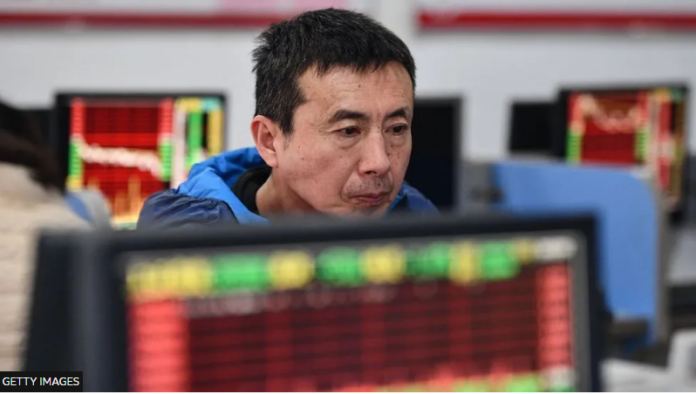The Chinese government has implemented new measures to address the deepening sell-off in its stock markets. Nearly $6 trillion has been wiped off Chinese and Hong Kong stocks since their most recent peak three years ago.
The China Securities Regulatory Commission (CSRC) announced the new measures to create a fairer market order. As of Monday, limits will be placed on “short-selling,” a trading strategy where a trader bets that a share or asset will decrease in value.
While short-selling can be seen as a way to determine the true value of an asset, some critics view it as a ruthless trading strategy that undermines companies.
The CSRC’s latest announcement follows a series of informal measures introduced by the regulator over the last year, which had little impact on financial markets’ stability.
The sell-off in China’s stock market is reflective of concerns regarding the country’s economic growth outlook. Central to China’s economic problems is its property market, which has faced significant challenges in recent years.
Last week, the country’s premier, Li Qiang, called for more “forceful” measures to stabilize share prices amidst the ongoing crisis.
Additionally, the troubles in the real estate sector have exposed issues faced by the country’s “shadow banks,” which have lent billions of dollars to developers without being subject to the same regulations as traditional banks.
China’s economy expanded by more than 5% in 2023, showing stronger growth compared to other major economies, but significantly lower than pre-pandemic levels. Meanwhile, youth unemployment has reached a record high, and local government debt has risen.
The developments in China’s financial industry will continue to be closely monitored as the country navigates through the challenges affecting its stock market and overall economic growth.

